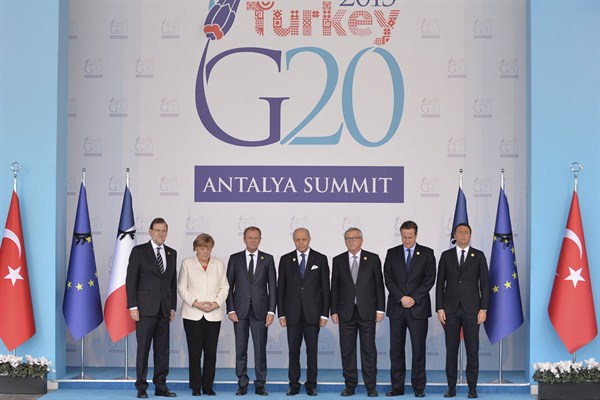World leaders from the 20 top economies as well as observer states met Sunday and Monday in southern Turkey for the annual G-20 summit. The gathering had been set to focus on an ambitious agenda to promote inclusive economic growth and global trade and investment. The terrorist attacks in Paris, however, overshadowed the meetings and raised hard questions about whether such summits can ever really grapple with the inequalities that lead to radicalization and despair.
The G-20 was created in 1999 but really swung into action during the 2008 global financial crisis. At the time it was seen as a useful intermediate mechanism for coordinated action on the international economic system, between the more elite G-7 grouping of highly industrialized countries and the more inclusive global financial institutions. The G-20, midwifed by Canada, had the virtue of including the G-7 plus the major emerging markets and some of the success stories of the Global South. Its other virtue was that it did not seek to be a new formal institution, eschewing a permanent secretariat and preparing its meetings in a more agile way by drawing on existing financial expert staff in the central banks and finance ministries of its members.
In 2008, the G-20 was widely viewed as the right vehicle to coordinate major economic policies, in particular those that might help to prevent a repeat worldwide financial crisis. Some observers assumed that it would also take on a political agenda and become a kind of board of directors of the international system. After all, according to its website, its membership comprises two-thirds of the world’s population, 85 percent of world gross domestic product, and 75 percent of world trade. That larger role has not been achieved, but it’s worth noting that many of the daunting challenges in international politics, such as climate change and terrorism, have implicit and explicit economic dimensions. Climate change will disrupt the economic prospects for many tropical countries and create more economic migrants, and the debate over whether terrorists are driven by economic inequities will continue, unresolved.

